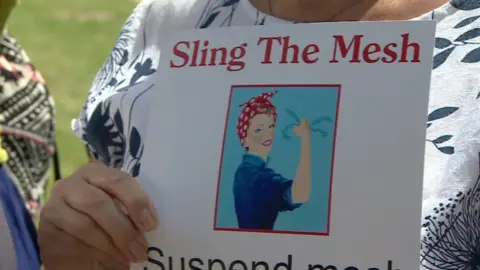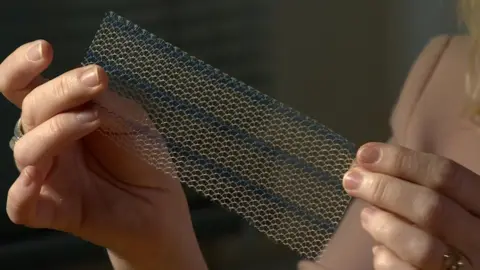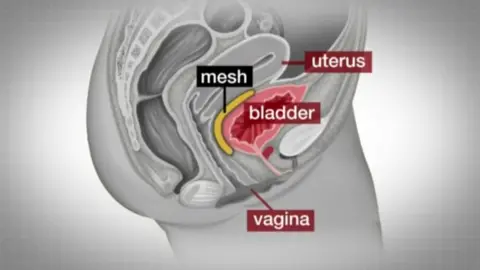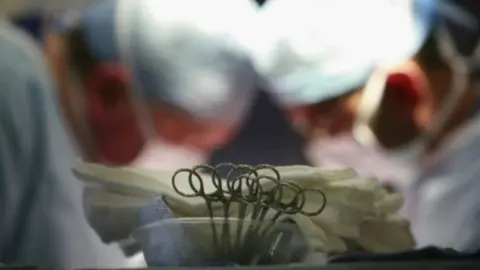Government rejects call for vaginal mesh implants ban
 BBC
BBCThe government has rejected a call for an inquiry and a ban on surgical mesh implants across the UK.
It follows a debate on the matter by MPs in the House of Commons.
A number of women from Northern Ireland were among those who travelled to London to hear the debate take place.
The women said they had been left in chronic pain after they were given mesh or tape implants, which are used to treat organ prolapse and urinary incontinence.

Use of the devices to treat those conditions has already been suspended in Scotland.
MPs had brought the concerns of hundreds of constituents, almost all of them women, who suffer severe pain and discomfort from the devices after they damaged their internal organs.
The mesh is made of polypropylene, a type of plastic, and surgeons routinely use it in hernia repair, for example.
While it is a successful operation in a majority of cases, it has gone badly wrong for others, leading to persistent pain, sexual problems or erosion of the mesh inside their bodies.

It is not clear how many women in Northern Ireland are affected by the issue.
The BBC has used Freedom of Information legislation to obtain this detail but figures are unclear due to the way operations have been recorded across the health trusts.
Speaking during the Westminster debate, Democratic Unionist Party MP Jim Shannon said he had received a "large number of emails from Northern Ireland people outlining their horrific experiences" after mesh surgery.
He added that his party was concerned by the issue and asking for "the best possible information, including better data for women considering the procedure".

Jackie Harvey, from Banbridge in County Down, was among those who went to London for the debate.
"We're frustrated but won't let it stop us getting on with the campaign - we are only going to get louder and more determined," she said.
"We can say that we have been harmed by this stuff and we want the true scale of this scandal to come out."
Ms Harvey now runs an online forum of about 250 members to support those affected.
The National Institute for Health and Care Excellence is due to publish updated guidance on the use of mesh implants in January.
